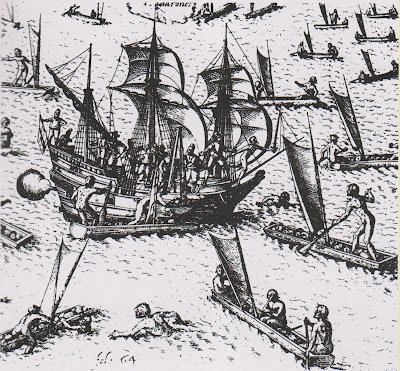Kao Mames Para Un Mataigue i Tano'-mu?

When teaching about militarism I like to use two poems in order to demonstrate the ways that war, military service and sacrifice become naturalized in societies and also the way they come to be challenged. The first is from Roman poet Horace and one of his Odes, in which he coined the line "Dulce Et Decorum Est, Pro Patria Mori" or "It is sweet and fitting to die for one's country." In it, the poet calls upon Romans to develop greater fighter skills in order to frighten off the always growing list of enemies of the empire. The second is written in response to Horace and also to the patriotism and militaristic sentiment that it is meant to evoke. Written by British poet Wilfred Owen, who fought in World War I and died during the war, it illustrates a brutish and ugly face to war, ignoring the glorious odes which people may devise to get young people excited and invested in military service. The famous line from Horace, Owens refers to as "th



